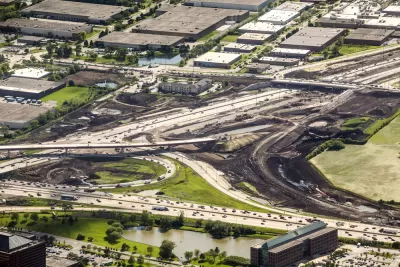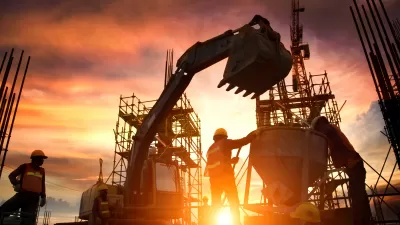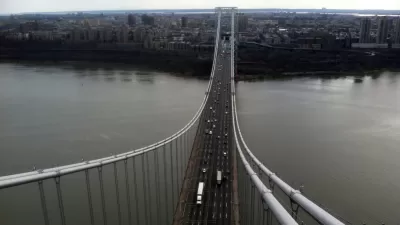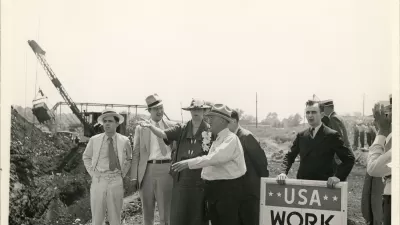As recessions fears grow, discussions about increasing the level of federal spending on infrastructure projects also grow.

The U.S. economy now appears headed for a recession, thanks to the S&P 500 dropping 20 percent from a recent high, so Jeff Davis writes about the potential of infrastructure spending as an economic stimulus.
According to Davis, “predictably, there are those in Congress who are calling for an increase in federal infrastructure spending as part of a response to this downturn in the business cycle.” WIth that political momentum in mind, Davis poses the following questions: “[I]s increased infrastructure spending the best way to counter a downturn in the business cycle that is caused by the confluence of a [sic] (a) a reduction in foreign trade; (b) a temporary collapse in demand for travel, hospitality, and public gatherings, and (c) a drastic drop of oil prices and its effect on the energy sector?”
To produce an answer, Davis investigates the 2009 American Recovery and Reinvestment Act, as well as highway stimulus spending from 1958, 1975, 1983, and 1991.
The answer is that the case for infrastructure spending in a recession is complicated. The slow pace of capital investments can make this approach ineffective as a response to short-term business cycles, but governments should do be spending on infrastructure anyway, for the potential long-term benefits.
FULL STORY: Looming Recession Sparks Familiar Calls for Infrastructure As Stimulus

Planetizen Federal Action Tracker
A weekly monitor of how Trump’s orders and actions are impacting planners and planning in America.

San Francisco's School District Spent $105M To Build Affordable Housing for Teachers — And That's Just the Beginning
SFUSD joins a growing list of school districts using their land holdings to address housing affordability challenges faced by their own employees.

The Tiny, Adorable $7,000 Car Turning Japan Onto EVs
The single seat Mibot charges from a regular plug as quickly as an iPad, and is about half the price of an average EV.

Seattle's Plan for Adopting Driverless Cars
Equity, safety, accessibility and affordability are front of mind as the city prepares for robotaxis and other autonomous vehicles.

As Trump Phases Out FEMA, Is It Time to Flee the Floodplains?
With less federal funding available for disaster relief efforts, the need to relocate at-risk communities is more urgent than ever.

With Protected Lanes, 460% More People Commute by Bike
For those needing more ammo, more data proving what we already knew is here.
Urban Design for Planners 1: Software Tools
This six-course series explores essential urban design concepts using open source software and equips planners with the tools they need to participate fully in the urban design process.
Planning for Universal Design
Learn the tools for implementing Universal Design in planning regulations.
Smith Gee Studio
City of Charlotte
City of Camden Redevelopment Agency
City of Astoria
Transportation Research & Education Center (TREC) at Portland State University
US High Speed Rail Association
City of Camden Redevelopment Agency
Municipality of Princeton (NJ)





























